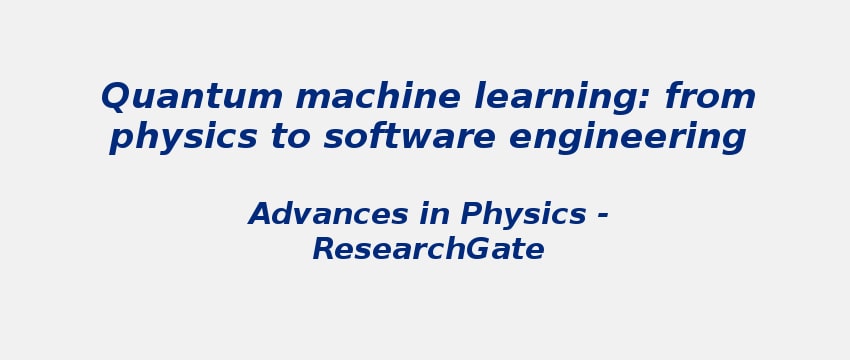Research Area: Machine Learning
Quantum machine learning (QML) is a new, rapidly growing, and fascinating area of research where quantum information science and quantum technologies meet novel machine learning and artificial intelligent facilities. A comprehensive analysis of the main directions of current QML methods and approaches is performed in this review. The aim of our work is twofold. First, we show how classical machine learning approach can help improve the facilities of quantum computers and simulators available today. It is most important due to the modern noisy intermediate-scale quantum (NISQ) era of quantum technologies. In particular, the classical machine learning approach allows optimizing quantum hardware for achieving desired quantum states by implementing quantum devices. Second, we discuss how quantum algorithms and quantum computers may be useful for solving keystone classical machine learning tasks. Currently, quantum-inspired algorithms, which use a quantum approach to classical information processing, represent a powerful tool in software engineering for improving classical computation capacities. In this work, we discuss various quantum neural network capabilities that can be implemented in quantum-classical training algorithms for variational circuits. It is expected that quantum computers will be involved in routine machine learning procedures. In this sense, we are showing how it is essential to elucidate the speedup problem for random walks on arbitrary graphs, which are used in both classical and quantum algorithms. Quantum technologies enhanced by machine learning in fundamental and applied quantum physics, as well as quantum tomography and photonic quantum computing, are also covered.
Keywords:
Author(s) Name: Alexey Melnikov, Mohammad Kordzanganeh, A. P. Alodjants, Ray-Kuang Lee
Journal name: Advances in Physics
Conferrence name:
Publisher name: ResearchGate
DOI: 10.48550/arXiv.2301.01851
Volume Information: Volume 3, (2023)
